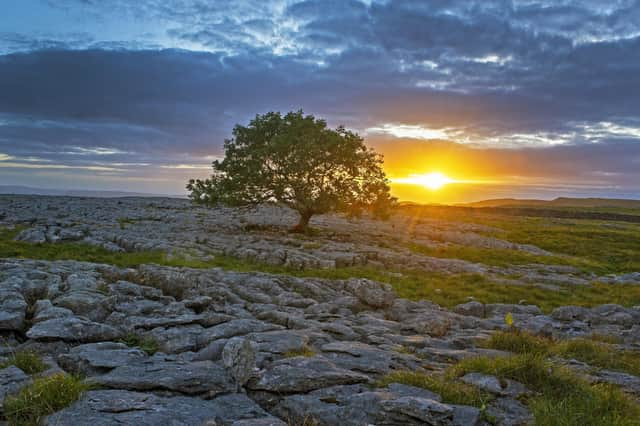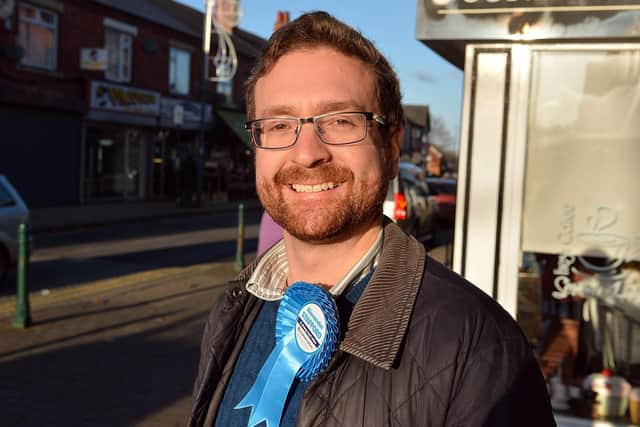How nature can help improve the health of all through social prescribing – Alexander Stafford


Importantly, social prescribing is about being connected to activities in our communities to improve health and wellbeing, whether by joining a community choir or running group or volunteering at a local nature reserve.
Recent guidance from the National Institute for Health and Care Excellence promotes the use of exercise for pain, alongside drugs. In fact, the NHS chief pharmacist’s recent report into over-medicalisation demonstrated that one in five over-65s is in hospital not for a condition they have, but due to the medicine they take, while 10 per cent of prescriptions dispensed address the symptom and not the cause of a person’s depression.
Advertisement
Hide AdAdvertisement
Hide AdEvidence also shows that one in five GP appointments is for non-medical needs, such as mental health, relationships, housing, loneliness, social isolation, managing a long-term health condition and debt.


Demand for GP appointments has increased by 30 per cent compared with pre-pandemic levels, but the ecosystem of social prescribing support is fragmented.
Healthcare professionals have limited visibility of what local support is available, while there is also significant inequality of access to nature. About one third of the population accounts for 80 per cent of all visits taken, and 2.69 million people do not live within a 10-minute walk of a green space.
People from low-income households are about 25 per cent less likely to live within a five-minute walk of a green space. Someone from a BAME background is nearly four times as likely as a white person to have no access to outdoor space at home. Almost 40 per cent of people from ethnic minority backgrounds live in areas most deprived of green space.
Advertisement
Hide AdAdvertisement
Hide AdThe inequality of access to green space seen for adults in England is also seen among children and young people. Most of our children spend not nearly enough time outdoors. Unequal provision means that those at greater risk of poor physical and mental health often have the least opportunity to benefit from green space.


In other words, inequality breeds greater inequality. Improving contact and connection to nature is one way to help break that cycle of inequality.
People who visit nature at least once a week are almost twice as likely to report good general health. Since the pandemic, 43 per cent of adults say that visiting green spaces has been even more important for their wellbeing.
We have already made great progress rolling out social prescribing across health and social care services. For the NHS, social prescribing is a relatively new model of care that builds community capacity and reduces demand for statutory services, particularly GPs – we all know the pressure GPs are under at the moment.
Advertisement
Hide AdAdvertisement
Hide AdSocial prescribing sits at the heart of NHS ambitions for system change, as a practical embodiment of personalised, joined-up, preventive, community-based care that addresses the social determinants of health.
Making that shift is now more urgent than ever. The Covid-19 pandemic laid bare the devastating realities of health inequalities across our communities. It has shown that we need to do better at reaching out to marginalised communities, closing the gaps in the support available in the most deprived areas.
My seat of Rother Valley is a former coalmining area with deep pockets of poverty and deprivation, and many of my constituents suffer from lung conditions caused by exposure to harmful particulates in the mines.
I have witnessed at first hand the poor health outcomes associated with a lack of access to high-quality green space, the mental and physical costs of social isolation from one’s community, and the price of late stage reactionary overmedication, in contrast to early preventive measures.
Advertisement
Hide AdAdvertisement
Hide AdIn my experience, it is true that those at greater risk of poor physical and mental health are the most likely to benefit from green space, but the least likely to able to access it.
I am thus determined to increase access to nature for left behind communities, and therefore to improve my constituents’ lives.
Alexander Stafford is the Tory MP for the Rother Valley who led a Parliamentary debate on social prescribing – this is an edited version.
Support The Yorkshire Post and become a subscriber today. Your subscription will help us to continue to bring quality news to the people of Yorkshire. In return, you’ll see fewer ads on site, get free access to our app, receive exclusive members-only offers and access to all premium content and columns. Click here to subscribe.
Comment Guidelines
National World encourages reader discussion on our stories. User feedback, insights and back-and-forth exchanges add a rich layer of context to reporting. Please review our Community Guidelines before commenting.